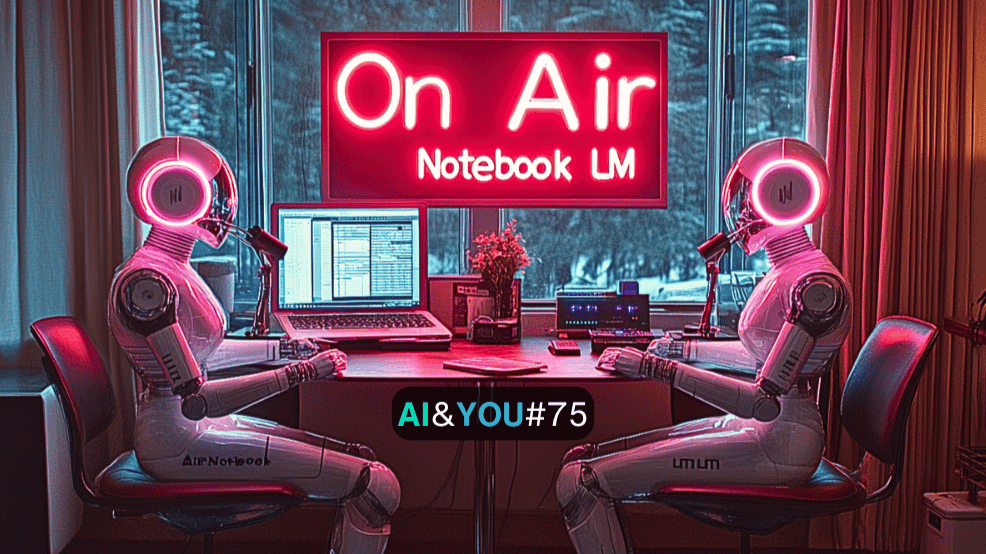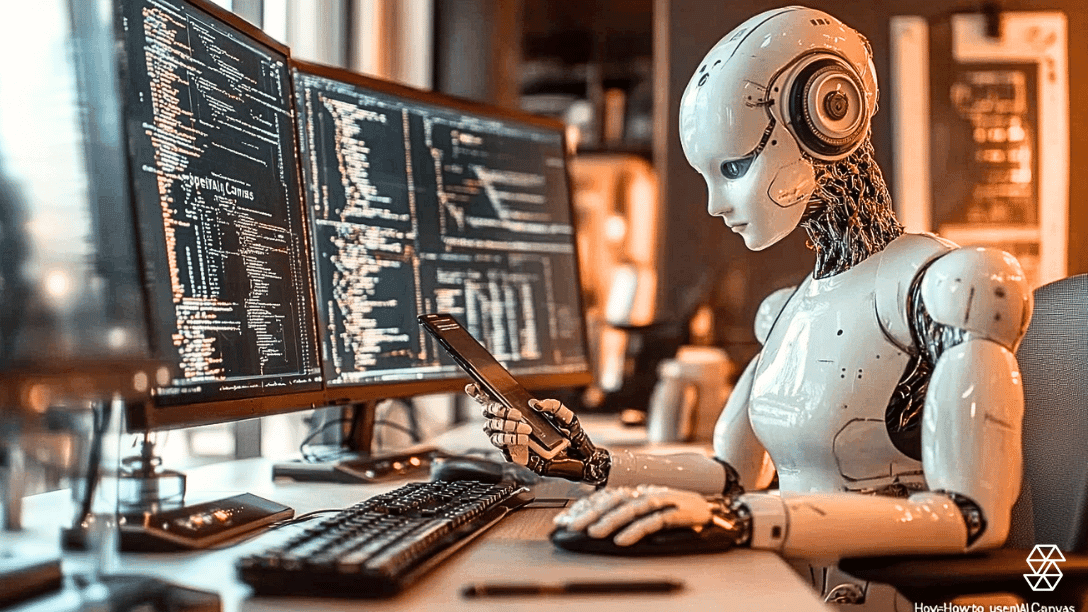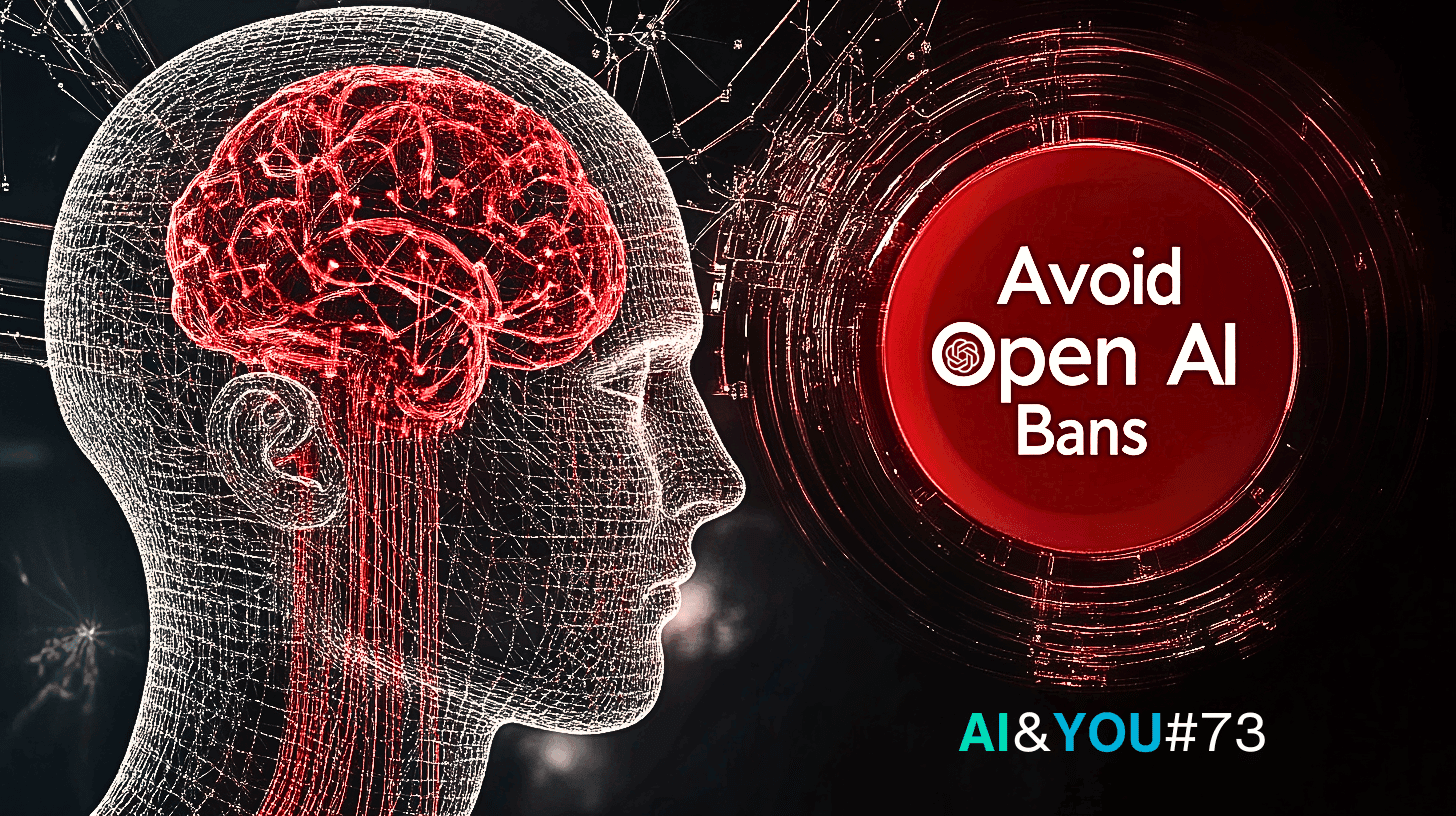AI Girlfriends, Digital Partners, and the Future of AI and Dating – AI&YOU #43
Stat of the Week: 47% Would Use AI Dating App for Long-Term Partnerships
In this week’s special edition, we are looking at the rise of AI girlfriends and digital partners before diving into some innovative ways dating apps are using AI. We then close it out with some key statistics that offer a glimpse into the future of AI and dating.
We will be exploring some key themes from articles we published this week:
The Rise of AI Companions and Digital Partners
5 Innovative Ways Dating Apps Use AI
10 Statistics on the Future of AI and Dating
AI&YOU #43: AI Girlfriends, Digital Partners, and the Future of AI and Dating
The rise of AI girlfriends, boyfriends, and digital companions or partners signifies a major shift in the interaction between humans and artificial intelligence, blurring the lines between digital and personal connections.
These AI companions, often powered by advanced language models, offer sophisticated, human-like interactions, marking a new era in relationships. Users engaging with these AI entities experience a unique blend of familiarity and novelty, challenging conventional notions of companionship.
This trend not only illustrates the technological capabilities of AI but also raises important questions about its impact on human relationships and social dynamics. As we explore this phenomenon, we delve into the mechanics of AI companion chatbots and the nature of these digital, yet personal interactions, highlighting the complex interplay between technology and human connection in today’s digital world.

Evolution of AI Companionship: From Gaming to Mainstream Culture
The evolution of AI companionship is a story of technological progress and societal change, driven by advancements in artificial intelligence, notably in natural language processing and machine learning.
Originating from simple text-based chatbots like ELIZA, the field has evolved significantly due to sophisticated AI technologies like large language models. These models, trained on extensive text data, have enabled a transition from basic responses to more dynamic, context-aware interactions.
The key to modern AI companionship is the advancements in NLP, allowing AI to understand and generate human-like language, complete with emotional nuances. This has led to AI companions that offer interactions mimicking empathy, humor, and personality, creating experiences similar to human communication.
AI companionship initially found its footing in the gaming industry, with virtual characters and romance simulation games. However, as AI technology advanced, these companions stepped out of the gaming realm into mainstream culture. Today, companion apps offer a wide range of personalized experiences, from platonic friendship to romantic interaction, catering to the diverse needs of their active users.
The evolution of AI companionship has also been fueled by the exponential growth of big data and advancements in machine learning algorithms. AI entities learn and adapt through interaction, becoming more refined and personalized over time.
The journey of AI companionship is a testament to the remarkable capabilities of modern AI technology. It not only reflects our technological prowess but also our innate desire for connection, showcasing the human side of artificial intelligence.

Custom GPT Companions
The introduction of custom GPT companions represents a significant evolution in the field of AI relationships. OpenAI’s recent launch of the GPT Store, a platform where paid ChatGPT users can buy and sell customized chatbots, has marked a new era in digital companionship.
This development allows users to not only interact with AI entities but also to personalize them to a previously unattainable degree.
The concept of custom GPT companions stems from the desire to have more personalized and meaningful interactions with AI. The GPT Store has seen a variety of these custom companions, ranging from AI girlfriends and boyfriends to more platonic chatbots. Each one offers unique characteristics and interaction styles, catering to the different desires of users.
This customization includes tailoring the AI’s conversation patterns, emotional responses, and even the topics it can discuss. Such detailed customization allows users to create a digital companion that aligns closely with their preferences, making the interactions more engaging and realistic.
However, the advent of custom GPT companions also brings to the forefront various ethical and policy considerations. OpenAI’s usage policy, for instance, bans GPTs dedicated to fostering romantic companionship or performing regulated activities.
This raises questions about the boundaries of AI relationships and the responsibilities of platforms hosting these AI entities. As the popularity of these custom companions grows, navigating these ethical waters and adhering to policy guidelines will be crucial for developers and platform providers.

Business and Legal Perspectives in AI Companionship
The rapidly growing field of AI companionship is not only a technological innovation but also presents significant market opportunities and business challenges. As consumer interest in AI technology increases, businesses are exploring this space for varied applications, especially in the realm of highly personalized products, similar to those offered in platforms like OpenAI’s GPT Store.
This burgeoning industry is fueled by advancements in AI, driving the demand for customized AI companions that can offer unique, tailored interactions.
However, this growth is accompanied by considerable data privacy and security concerns, as well as legal complexities. AI companions, by their nature, process and collect extensive personal data to facilitate personalized interactions, raising critical questions about data handling, storage, and protection.
Ensuring compliance with data protection regulations is paramount for companies in this space, striking a balance between personalized user experiences and robust privacy safeguards. Additionally, the legal framework around AI relationships is still emerging, with a need for clear guidelines on issues like user consent, data ownership, and liability in case of misuse.
Companies venturing into AI companionship must navigate this evolving legal landscape and address ethical considerations, thereby building user trust and establishing themselves as responsible leaders in this new field.
The Future of AI Companionship
As we venture deeper into the era of artificial intelligence and the large language model, the future of AI companionship holds intriguing possibilities. Predictions about the evolution of AI companions and their role in society point towards a landscape that is as diverse as it is complex.
Future AI companions are expected to achieve unprecedented levels of personalization and realism in a companion app. Advances in AI and machine learning will enable these companions to understand and adapt to individual user needs and preferences more effectively. This could lead to AI entities that not only mimic human behavior and conversation but also anticipate user needs, manage preferences, and evolve over time, much like a real human relationship instead of an AI companion.

5 Innovative Ways Dating Apps Use AI
AI is revolutionizing online dating by offering more personalized, meaningful matchmaking and safer dating experiences. AI-powered dating apps, such as Iris Dating, use advanced models to analyze various traits, providing precise matches and enhancing user interaction.
These AI tools extend beyond just matchmaking; they assist in creating dynamic dating profiles and guiding users in conversation, enriching the overall dating experience with a level of personalization and insight that was previously unattainable.
This week, we also look at 5 innovative ways dating apps use AI:
Facial Feature Analysis for Attraction: AI-powered dating apps like Iris Dating use machine learning to analyze facial features, adapting to user preferences for physical attributes. This approach enhances matchmaking, providing more personalized connections and increasing the likelihood of finding compatible partners.
Personality Marker Detection: Apps like Tinder use AI to analyze text and image content in user profiles, identifying personality traits and interests. This deeper analysis aids in suggesting matches based on a more comprehensive understanding of users, leading to potentially more meaningful connections.
Predicting Chemistry through DNA Profiles: Innovative apps like DNA Romance integrate DNA profiles in matchmaking, using AI to predict compatibility based on genetic makeup. This scientific approach combines genetics and personality assessment tools for more accurate matches.
Filtering Fake Accounts and Content: AI is crucial in identifying and removing fake accounts and inappropriate content in dating apps. For example, algorithms developed by researchers at the University of Warwick can detect bot accounts with high accuracy, enhancing user safety and authenticity.
AI-Assisted Writing for User Profiles and Messages: Tools like Grammarly and generative AI applications aid users in creating engaging dating profiles and messages. These AI-assisted tools help refine language, suggest style improvements, and generate creative, personalized text, improving user interactions and chances of finding a match.

10 Statistics on the Future of AI and Dating
We also explore ten compelling statistics that highlight the growing influence of AI in the dating world, offering a glimpse into what the future of love might look like.
47% Would Use AI Dating App for Long-Term Partnerships
Half of Adults Under 30 Have Used Dating Sites/Apps
Dating App Revenue to Reach US $3.41 Billion by 2027
“AI Girlfriend” Searches Increased by 525% in One Year
54% Prefer AI Assistance in Finding Matches
45% Want AI Recommendations for Physical Attraction
47% Interested in Advanced AI-Based Dating Apps for Long-Term Relationships
1 in 5 Young People Open to AI/Virtual Partners
Men Twice as Likely as Women to Consider AI Partners
Half of Young Adults Using Dating Apps
These statistics collectively paint a vivid picture of the transformative role AI is poised to play in the dating industry. From the growing acceptance of AI-assisted matchmaking to the openness towards AI and virtual relationships, it’s clear that AI is not just a passing trend but a driving force reshaping the landscape of love and relationships.
Thank you for taking the time to read AI & YOU!
Are you a Founder, CEO, Venture Capitalist, or Investor seeking expert AI Advisory or Due Diligence services? Get the guidance you need to make informed decisions about your company’s AI product strategy or investment opportunities.
Book your free 15-minute Consultation today!
We build custom AI solutions for Venture Capital and Private Equity backed companies in the following industries: Medical Technology, News/Content Aggregation, Film & Photo Production, Educational Technology, Legal Technology, Fintech & Cryptocurrency.
For even more content on enterprise AI, including infographics, stats, how-to guides, articles, and videos, follow Skim AI on LinkedIn.






